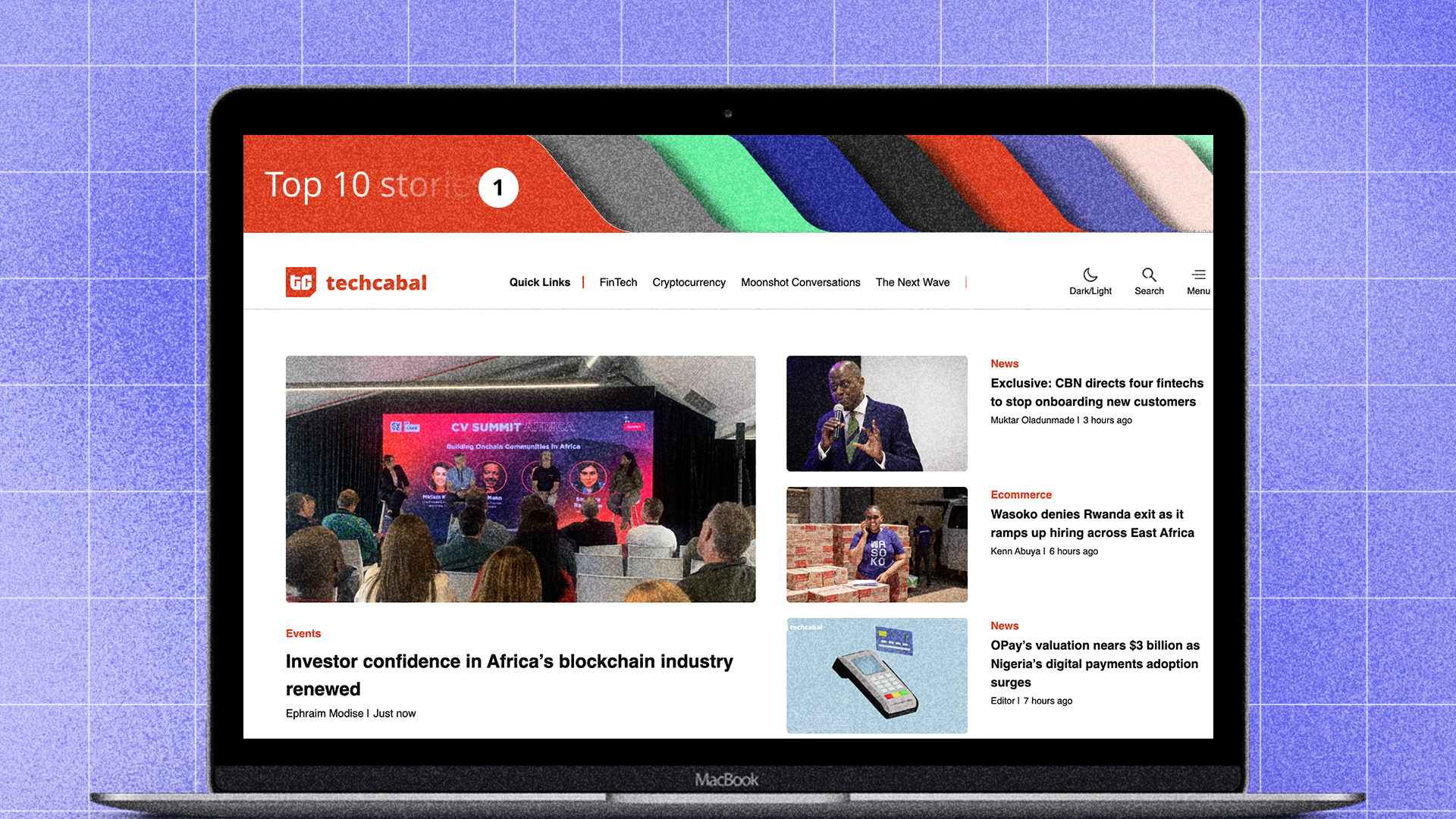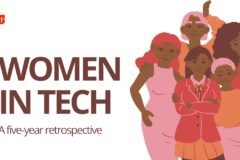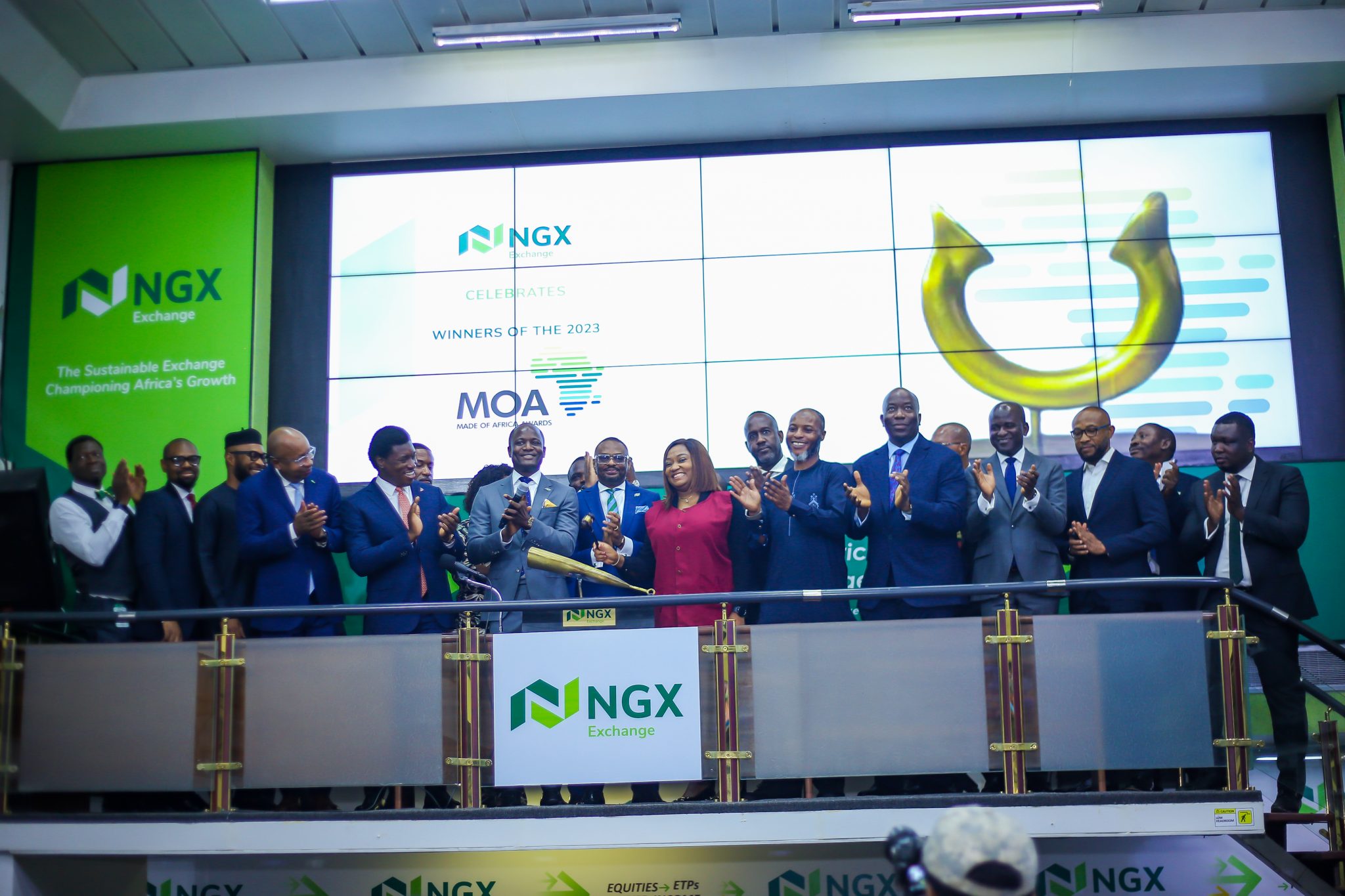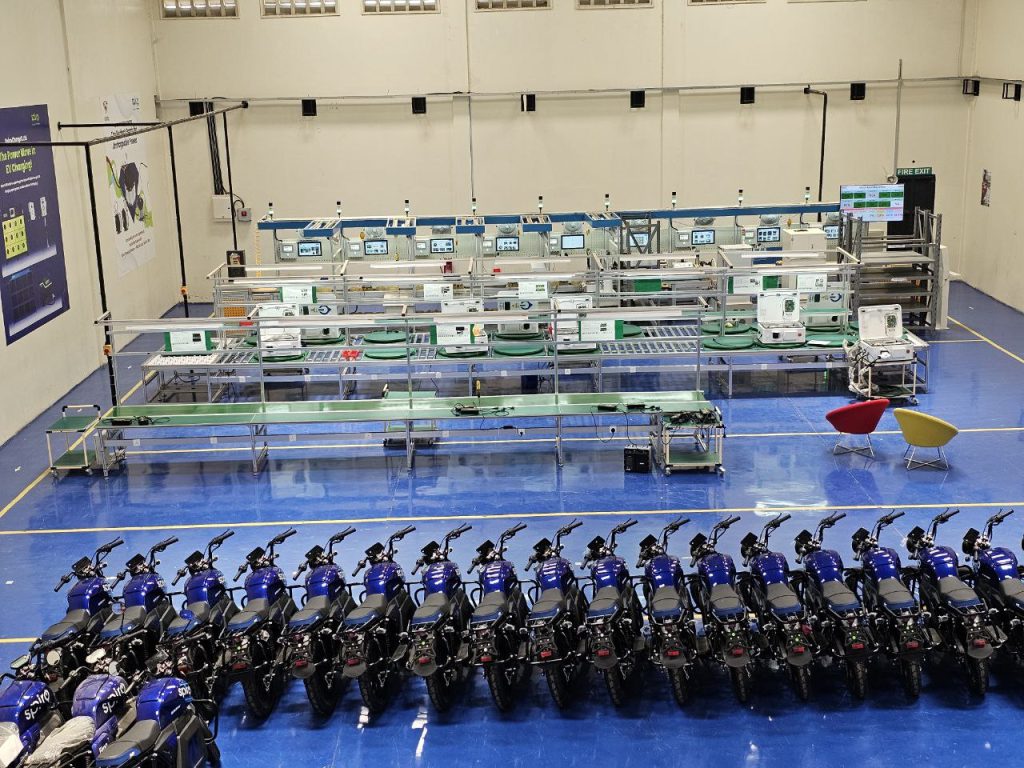With the African tech ecosystem beset by a funding downturn, rising inflation, layoffs and startup shutdowns, the industry was off to a slow and uncertain start this year. Despite these challenges, some major highlights have kept us optimistic at TechCabal as we continue to report news about the ecosystem in the best way possible.
Our work captures the players, human impact and business of tech in Africa, providing the content, reporting, data, events and context to help the world understand how tech is changing the continent. From acquisitions and strategic partnerships to company expansions in new markets to regulatory laws for digital nomads to startup pivots and tech ecosystems popping up in unexpected places, here are some of our best-loved stories from Q1 2024.
How a clash of visions led to Olu Akanmu’s exit from Opay
While Olu Akanmu was CEO at Opay, the fintech grew exponentially, reaching over 30 million users, 500,000 agents, and 100,000 merchants, according to publicly released figures. Unfortunately, due to idea and direction clashes with the company’s broader leadership, Akanmu stepped down as CEO.
How Huawei became Nigeria’s biggest telecoms vendor and enterprise business
Huawei launched in Nigeria in 1999, two years before Nigeria’s telecommunications revolution. The company has sold servers and storage solutions for top Nigerian banks like UBA, Zenith, Access, Fidelity, Keystone, First Bank, Unity Bank, UBA, and FCMB. In May 2023, a fire at Zenith Bank’s primary data centre caused a service downtime, and attempts to switch to its disaster recovery centre also failed. That incident is thought to have convinced Zenith—a tier-1 bank with a market capitalisation of ₦1.1 Trillion to sign a $10 million deal with Huawei for a storage solution.
Patient capital, diverse exits: Verod-Kepple’s vision for the future of African startups
Verod-Kepple Africa (VKAV) is a venture capital fund that is partnered with Verod Capital, a Lagos-based private equity firm. The firm’s average ticket size is between $1 million and $3 million, and it has invested in 11 growth-stage startups, like Moove (a Kepple Africa portfolio company), Shuttlers, Chari, and Julaya. All three partners of Verod-Kepple—Ory Okolloh, Ryosuke Yamawaki, and Satoshi Shinada—shared with TechCabal their investment thesis and why they are backing African startups.
Wasoko merger fallout
Wasoko, a Kenyan e-commerce platform which was founded in 2013 and raised over $140 million from investors, entered into a merger with MaxAB, an Egyptian retail company, without informing their employees. The employees first heard about the merger on a video call attended by MaxAB executives in early December 2023, the same month the deal was announced. This event triggered many other happenings in the company, including the layoff of over 100 employees across departments in both Kenya and India. It also led to nine employees suing Wasoko, claiming they had been unfairly fired. The employees argued that the company did not give them sufficient time to prepare for their exit. Following this, the court barred Wasoko from firing the aggrieved employees, and the company promised to make provisions to aid the exit of said employees, including providing health insurance coverage until March 2024.
How Eyowo’s bid to become a fintech giant hit the rocks
In 2019, Softcom, a software development agency, shifted its focus from its client-side business to building consumer-facing products, and became Eyowo, one of Nigeria’s earliest digital banks. But, five years later, with three rounds of layoffs, persistent delays in salary payment, and a revocation of Eyowo’s banking licence in 2023, the company’s fortunes, unfortunately, turned. Sources who spoke to TechCabal claimed that Eyowo’s licence was revoked because it stopped offering loans to customers, contravening a regulatory requirement for microfinance banks. In March, the company insinuated it has regained its licence and that there are talks about a possible rebrand as “Entrepreneur Bank”.
Fintech giant Flutterwave secures release of $3 million in Kenya
In 2022, the Assets Recovery Agency (ARA) in Kenya froze $55 million, belonging to fintech giant Flutterwave, on fraud and money laundering charges. After the charges on the first case were withdrawn in March 2023, the court unfroze the majority of the funds amounting to $52.5 million. The rest of the funds were not immediately released, despite a court order to release them after the ARA sought court approval to withdraw money laundering charges against the fintech startup in July 2023, but the judge denied the request. Finally, in February 2024, over a year later, the court cleared the remaining funds: $3 million; and released it to Flutterwave. It was good news for the fintech giant.
What is it like to build a tech ecosystem in Nigeria outside the country’s tech capital?
Lagos is to the Nigerian tech ecosystem what Silicon Valley is to the North American ecosystem. Yet, unlike the US, where other states like New York, Seattle and Chicago still have thriving ecosystems that complement Silicon Valley, tech ecosystems outside Lagos struggle to build their identities or get significant attention from stakeholders. Sanusi Ismaila and Excel Ajah are some of the people working to beat the odds by creating co-learning labs and communities in other Nigerian cities like Kaduna and Owerri. These communities are taking shape and building promising tech talent outside Lagos in ways that will be beneficial to the country’s ecosystem as a whole.
Bolt launches in Zimbabwe and waives driver commission for six months
In January, Bolt, the popular ride-hailing company, expanded their African operations to Zimbabwe, particularly its capital city, Harare. As an incentive for drivers, the company waived its usual standard commission for six months. This move marked Zimbabwe as the third country in Bolt’s strategic move into the Southern African market; after the company launched in South Africa in 2016, and conducted pilot operations in Zambia in 2023. In a similar move, Bolt also launched operations in Botswana in February, about a month later.
South Africa eyes Nomad gold rush, targets wealthy remote workers in new draft regulations
South Africa is trying to become the fifth African country to start granting digital nomad visas. The country announced this decision and published draft regulations for the visa category, inviting the public to share feedback and comments that will shape its eventual implementation in February. South Africa’s digital nomad visa will target nomads earning at least R1 million (~$53,000) annually. The goal is to position the country as the global hub for digital nomads. However, the country has many amendments to make in its laws, specifically around tax exemption, if the digital nomad visa regulation is to take off.
Inflation is a two-sided coin for BNPL startups in Nigeria
Buy-now-pay-later startups in Nigeria operate in a market where retail credit is in its very early stages, but inflation and the rising cost of living are affecting these businesses in interesting ways. The reduced purchasing power of individuals means that more people are exploring ways to pay for their wants in instalments, which means a boost in new customers for these startups. On the other hand, the same inflation has obliterated an entire demographic of former middle-class Nigerians who now cannot afford to pay for any wants at all and would rather focus on their basic needs.




















